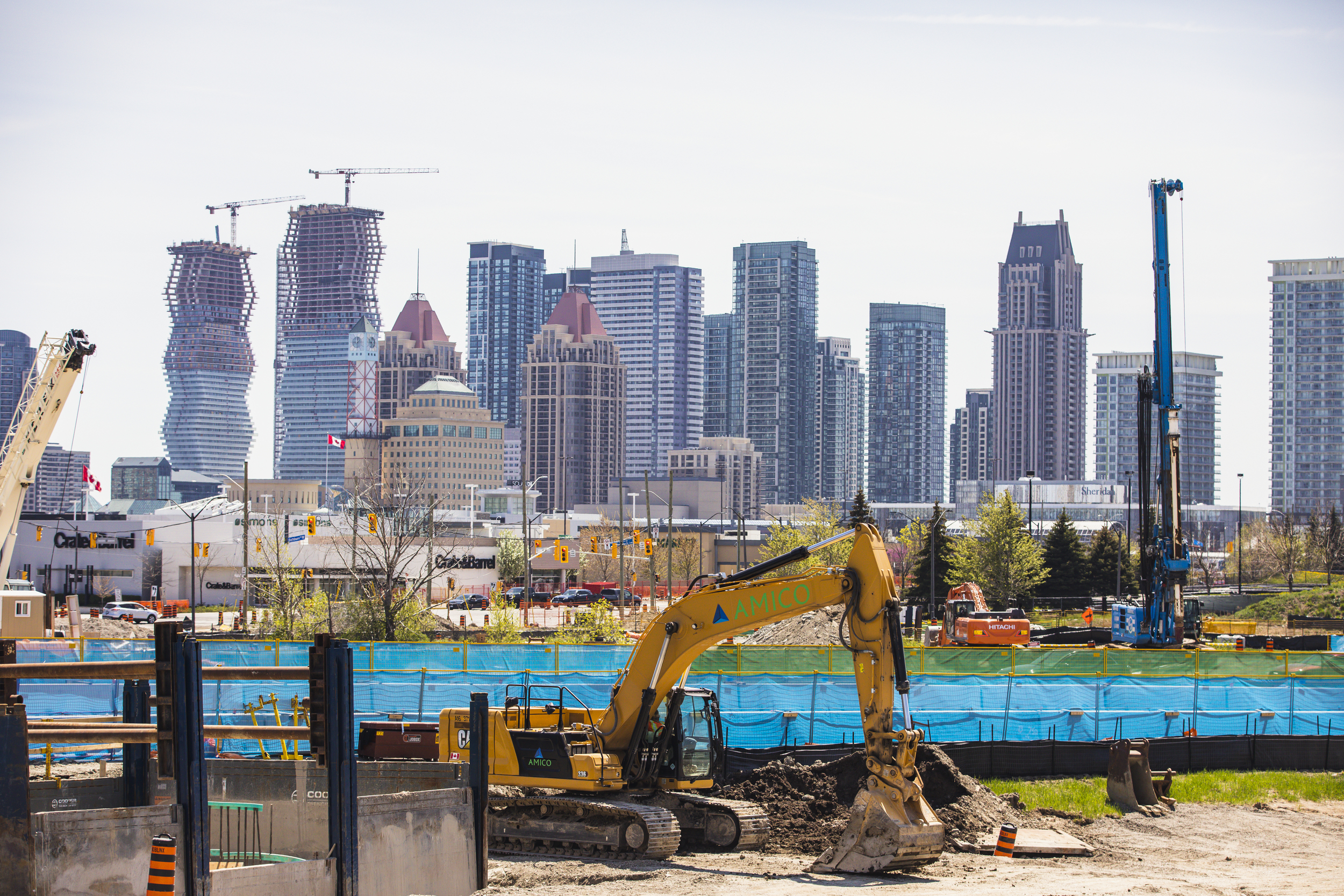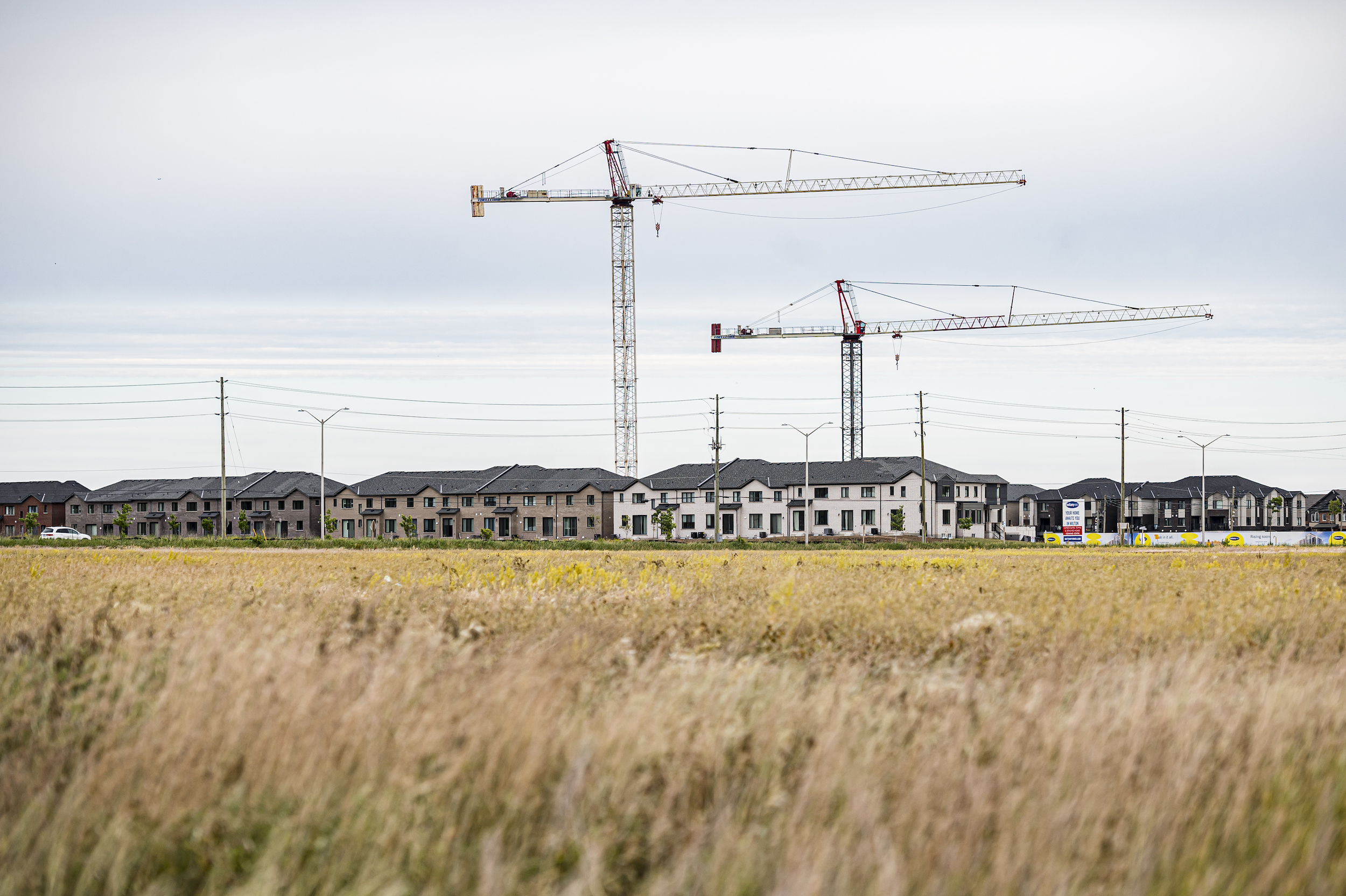
5 things to know about Winnipeg’s big sewage problem
115 billion litres, 70 years to fix, $5.5 billion in lawsuits
On Thursday, the Doug Ford government told The Narwhal its sweeping legislation to get “More Homes Built Faster” would have unintentionally stripped away certain environmental powers from municipalities — a mistake the Ministry of Municipal Affairs and Housing says it is now moving to correct.
During a legislative committee meeting on Nov. 22 to review Bill 23, or the More Homes Built Faster Act, the Ford government proposed a flurry of changes to the original bill. One of the most significant is to revoke a controversial provision that would have banned environmental groups, residents and others from appealing project approvals. Most changes impact municipal authority over development: also being struck out are new rules that would have sped up aggregate mining to produce sand, gravel and crushed stone for construction.
Another amendment proposes to protect some city powers to regulate environmentally-friendly design elements in buildings. The original version of the legislation had proposed to fully remove cities’ ability to set what are known as “green standards” for construction, dictating how new buildings address energy efficiency, waste and stormwater management, emissions and access for pedestrians and bikes.
Repealing this authority would have eviscerated policies like Toronto Green Standards — a set of requirements for all new commercial developments in the city, offering financial incentives to developers to create energy efficient, low emissions buildings — which Ford voted in favour of as a city councillor.
Buildings are the third largest source of emissions in Ontario, accounting for 24 per cent of the province’s total emissions. In 2020, the province’s auditor general found the government wasn’t doing enough to address these emissions, noting that various ministries “do not … effectively oversee, evaluate and improve the performance of programs to support and encourage reducing energy use in buildings.”
Given that provincial gap, cities have tried to fill it themselves. Green standards are the key measure by which Toronto plans to achieve its 2040 net-zero goals. In an official response to Bill 23 submitted to the province earlier this week, City of Toronto staff wrote that cutting green standards “could result in the city’s inability to address climate change, biodiversity loss and the TransformTO Net ZeroStrategy targets.”
A dozen other cities have adopted these standards too, including Ottawa, Brampton, Ajax, Whitby, Pickering, Halton Hills, Markham and Richmond Hill, with others like Hamilton and Mississauga in the process of setting their own.
The proposed amendments don’t let cities keep all of their powers: they would only be allowed to regulate specific elements, particularly green roofs and climate-conscious landscaping. The province has extended the public consultation period for this new green standards clause by 15 days, until December 9.
In an email to The Narwhal, Victoria Podbielski, a spokesperson for Minister of Municipal Affairs and Housing Steve Clark, said: “The intent of Bill 23 was not to prevent municipalities from addressing these types of matters — but to prevent municipalities from using this tool to implement unnecessary visual design requirements, like mandating a certain type of brick exterior or colour. Often these requirements lead to increased costs and significant delays.” When asked, Podbielski didn’t offer any examples of municipalities that had used green standards to mandate brick colour or delay development.
The statement is a confirmation of what multiple municipal and provincial sources told The Narwhal this week, that repealing green standards was “a mistake” made by Clark, “an unintended consequence” of the omnibus bill that the Ford government says is designed to address Ontario’s housing crisis.

Bryan Purcell, vice president of the regional climate agency Toronto Atmospheric Fund, said that senior members of Clark’s office as well as housing ministry staff gave him the same rationale, saying that the clause in question was originally removed because “cities shouldn’t regulate the colour of bricks in a building.”
After the legislation was released, Purcell told The Narwhal, he learned some who drafted it were “completely unaware” the bill would repeal green standards. Senior housing ministry staff “were surprised to hear it would stop cities from enforcing green standards,” said Purcell, whose organization invests in low-carbon projects in the Greater Toronto and Hamilton Area. “They said it wasn’t their intention to compromise the standards.”
On Nov. 24, after the legislation amendments were announced, Purcell met with Clark’s Chief of Staff Ryan Amato and Assistant Deputy Minister of Planning and Growth Sean Fraser. Purcell said he was told that when Clark heard of the impact of Bill 23 on green standards, “he wanted to do something to preserve them.”
The government has also made a new promise to develop a voluntary provincial-wide green building standard, but hasn’t provided details. Purcell said that in Thursday’s meeting he was told this new standard “would take some time to develop and pass” and the government couldn’t commit to a timeline.
When he asked that Bill 23 be delayed until the regulation was written, senior staff told him “they are not prepared to do that, though they hope green standards will keep going until the new province-wide regulation is ready for use,” Purcell said.
Podbielski said that the Ontario building code “already contains high standards for energy efficiency that apply across the province.” But municipal sources are concerned the code is not robust enough to meet climate targets, noting that the 2020 auditor general report chastised the government for poor enforcement of what requirements do exist.

Municipal planning staff from four Ontario cities told The Narwhal they have not received answers from the Ford government to their questions about green standards, or much else in the huge bill. The Narwhal granted them confidentiality because none were authorized to speak publicly: many said they suspected the green standards repeal was intended to reduce construction costs. Green standards compel developers to carry the expense of setting up energy-efficient technology and sustainable garbage and composting systems, for example.
The standards are meant to be environmental protections, but also long-term cost-saving measures. Planners say that buildings designed to be sustainable and climate resilient for decades to come should ultimately save municipalities and residents money.
Don Herweyer, Ottawa’s interim general manager of planning, spoke to his council about Bill 23 on Nov. 8, noting the city just implemented high-performance green standards this year, despite developer pushback and outrage. The motivation, he wrote, was that the costs of new low-carbon buildings is “substantially lower than retrofitting buildings after construction.”
Some municipal staff told The Narwhal they believe repealing standards will result in new houses that face rising energy and retrofit costs as climate change impacts — such as flooding and extreme heat — continue to worsen.
Craig Ruttan, senior policy director at the Toronto Region Board of Trade, told The Narwhal the repeal of green standards would hurt Ontario’s economy, as businesses see them as “really effective in encouraging more efficient construction that promotes innovation and saves costs in the long-term.” Rutton hopes the government recognizes green building standards are “a huge economic opportunity for the province that has given way to new businesses.”
These environmental worries are among a list of many spurred by the changes to the planning process in Ford and Clark’s housing legislation, including gutting conservation authorities and downloading responsibilities to manage watershed and flood protection to cities and towns.
In Mississauga, a Nov. 17 planning report states repeatedly that losing municipal authority over sustainable design “could impact the creation of units that are more efficient and affordable to heat and operate” and increase building emissions.
“Elimination of this takes away the city’s ability to shape the public realm and would undermine the quality of places in our city,” the Mississauga staff report says.

On Thursday, a group of over 50 Ontario engineers also voiced concerns about the province’s changes to green standards, releasing a letter that asked the Professional Engineers of Ontario and the Ontario Society of Professional Engineers to publicly oppose Bill 23.
The letter said the bill “threatens the ability of engineers to make the safety of the public their first priority.” It also noted that green standard requirements have already “been successful in reducing greenhouse gas emissions and stormwater runoff from new buildings, as well as reducing the urban heat island effect,” the term for how concrete and asphalt trap heat, which can be offset by natural features like trees, water and unpaved areas.
On Thursday, in an email response to the letter, Sandro Perruzza, CEO of the Ontario Society of Professional Engineers, said he had “personally met” with Ontario’s associate minister of housing last week and “vocalized my opposition to the bill” on behalf of the organization.
Before walking back the bill, Clark was asked about the repeal of green standards at a Nov. 9 government committee meeting. In response, Clark didn’t offer his rationale for cutting them, saying he he recognized the strength of Ontario’s building standards but that municipalities did not want “a one-size-fits-all approach” and “there are some inconsistencies out there, so we’ll continue to consult them.”
But municipal staff tell The Narwhal they have not been consulted, and feel there isn’t much time for dialogue with only two weeks left till the legislature takes its holiday break. Ford introduced the housing bill before newly-elected municipal governments were sworn in, and councils have had less than two weeks to read and absorb Bill 23 — which is one of the largest pieces of legislation the Ford government has released, impacting nine laws and every aspect of planning and development in Ontario.
New councils across southern Ontario plan are now scrambling to make sense of the bill even as the Ford government makes changes.
“Cities are confused,” Purcell said. “On the one hand, they’re being told this wasn’t intended. On the other hand, their authority is still being undermined. It’s left a gaping hole in cities’ climate plans and the [Ford government] has made it difficult, actually impossible, to fill.”
Get the inside scoop on The Narwhal’s environment and climate reporting by signing up for our free newsletter. On a warm September evening nearly 15...
Continue reading
115 billion litres, 70 years to fix, $5.5 billion in lawsuits

Climate change, geopolitics and business opportunities power a blue economy

10 billion litres of sewage are dumped into Winnipeg’s lakes and rivers each year. Some...
